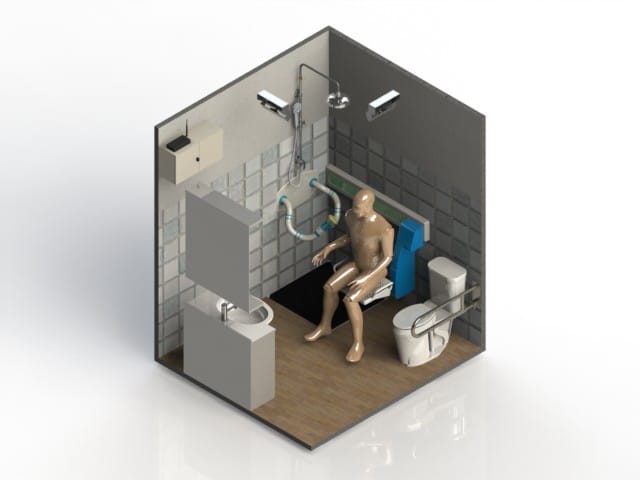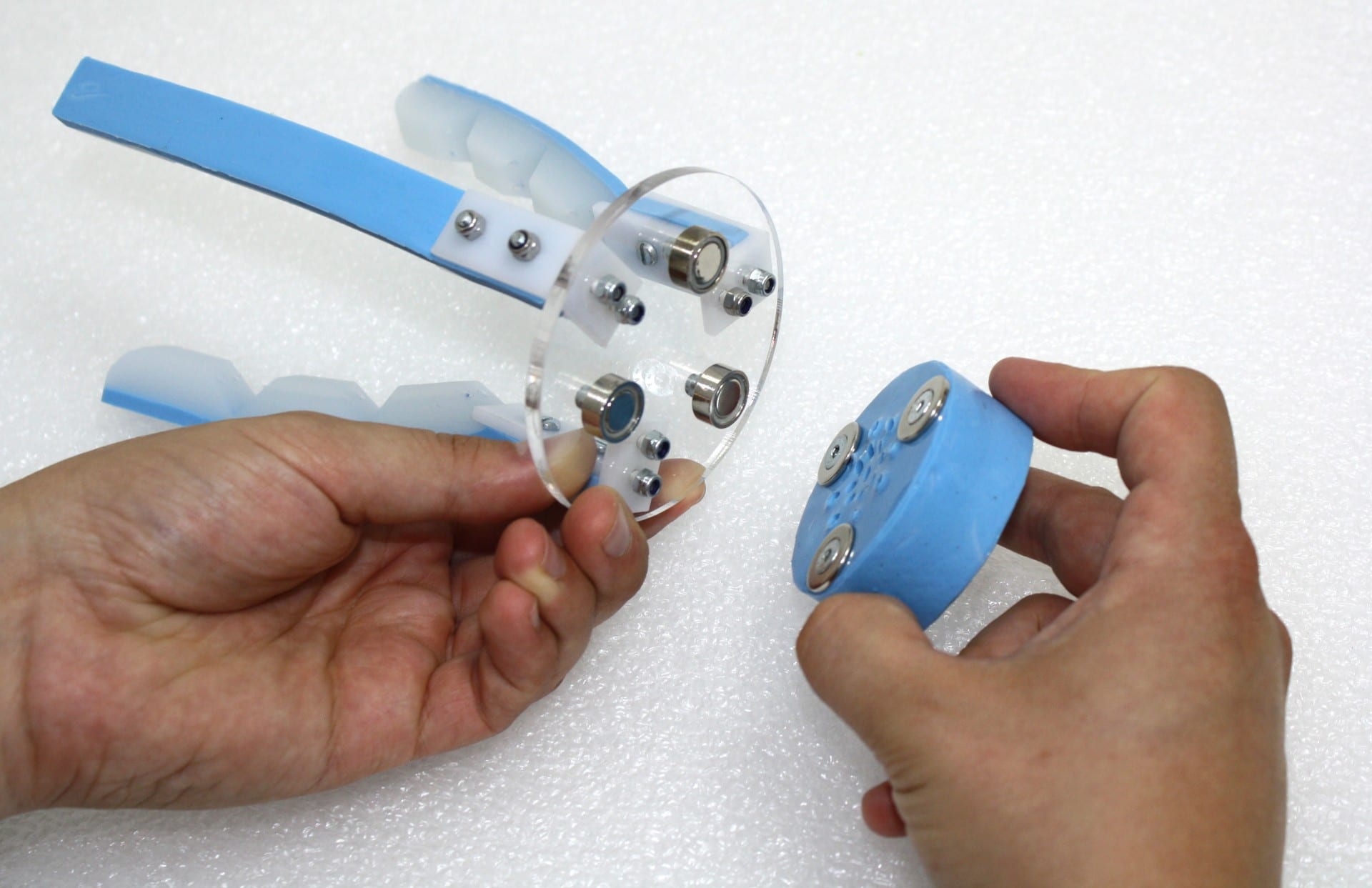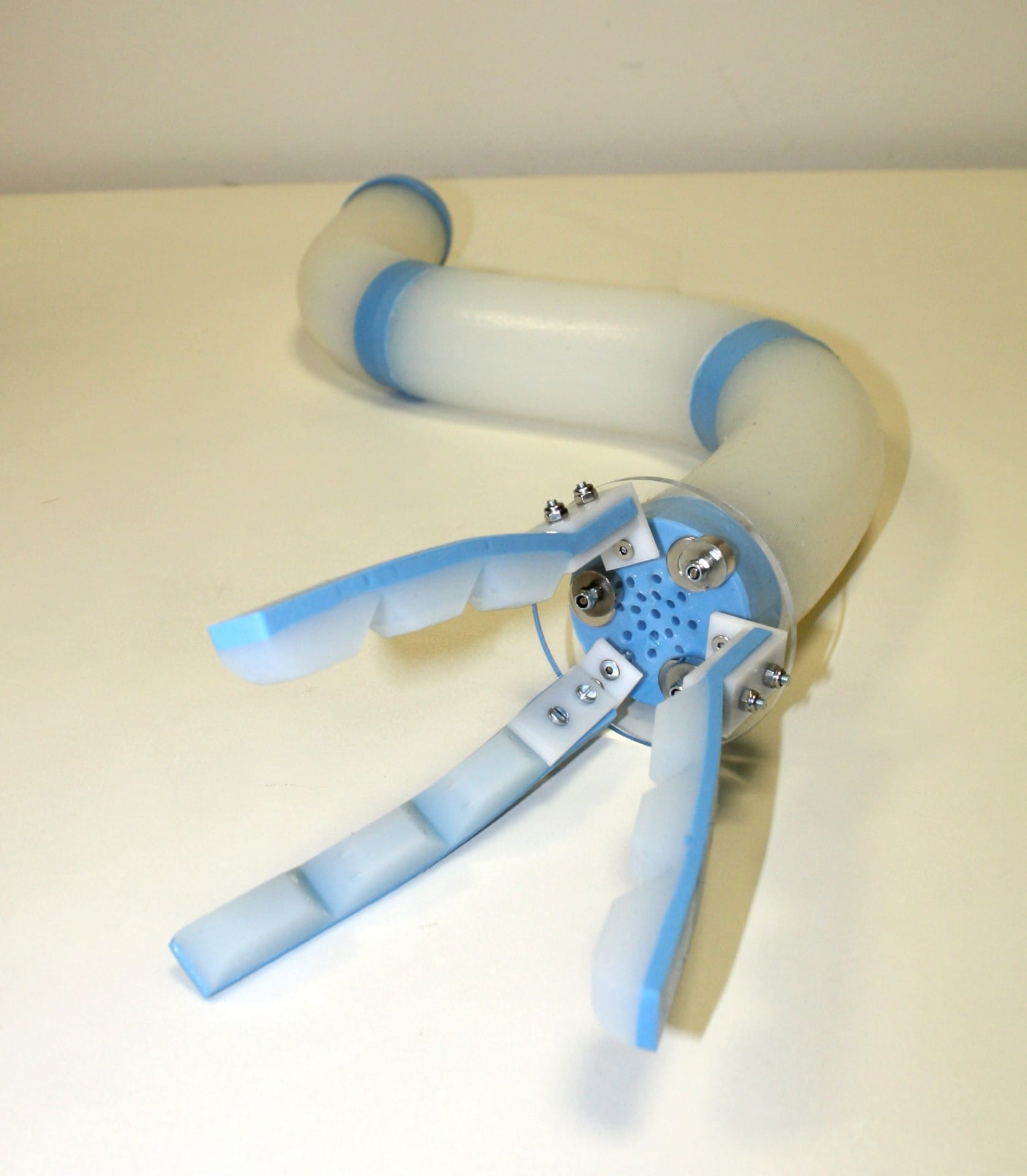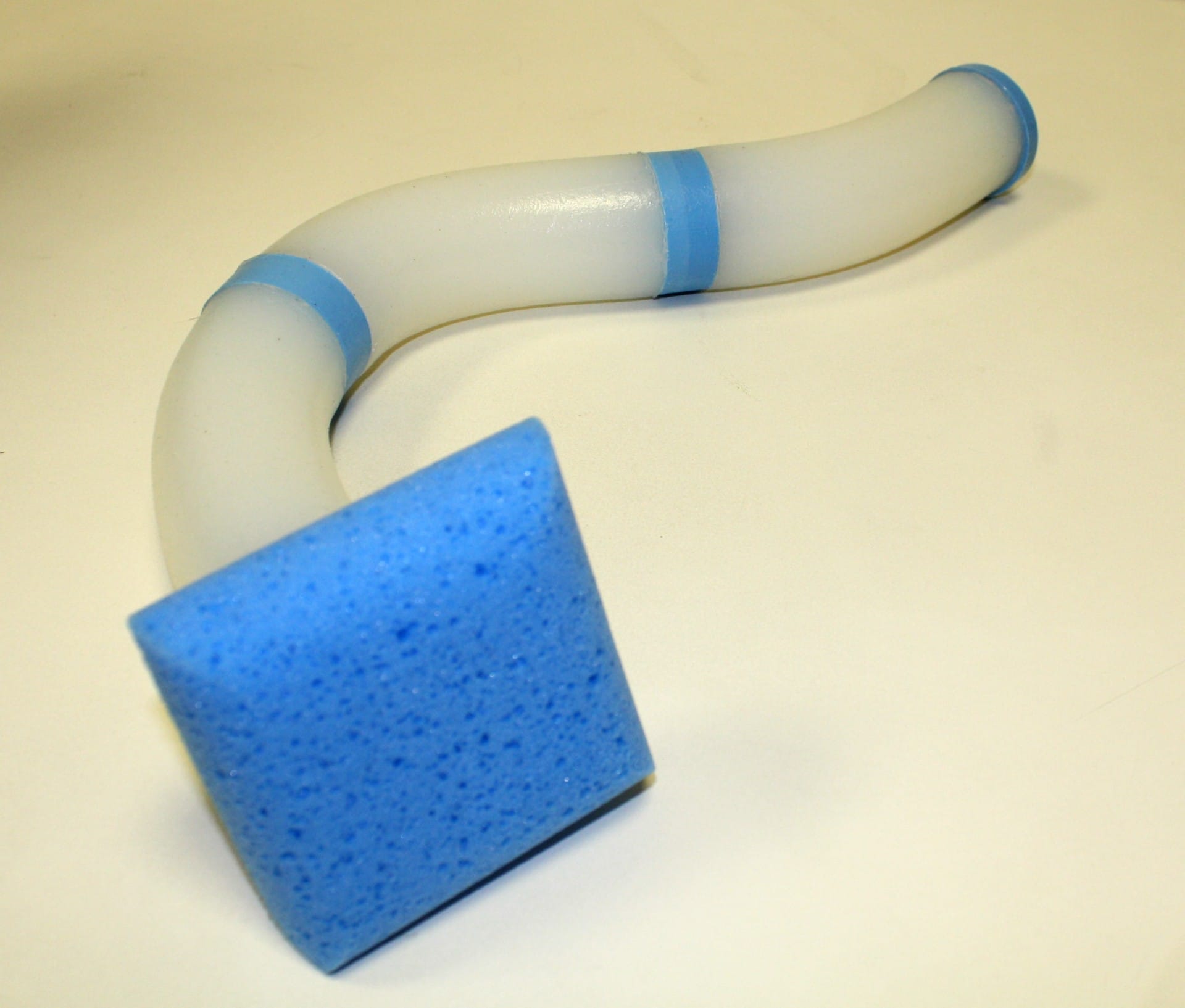Italy (Pontedera)
In light of this century’s gains in life expectancy, the issue of supporting older people so that they can remain in their own homes is becoming increasingly crucial. Getting dressed, moving around and being able to feed oneself and go to the toilet are key to retaining independence. However, it is bathing that is seen as the first ‘Activity of Daily Living’ (ADL) that individuals become unable to perform on their own, becoming dependent on family, home care or special care.
A consortium in Europe led by The BioRobotics Institute of the Scuola Superiore Sant’Anna is developing a bathing system to help elderly people with carrying out the private everyday task successfully, safely and independently – to provide dignity and self-esteem: “I-Support is going to develop a system that includes a soft robot arm installed in the shower,” explains project leader Cecilia Laschi. “This is possible thanks to soft robotics technologies, which make use of a fluid actuation for moving the arm, while keeping it soft and intrinsically safe.”
An entire I-Support unit looks like a shower without sides, with a motorised chair and two soft robot arms. One arm is a shower head and soap dispenser. The other can hold a sponge or towel. The system is modular to enable it to be easily installed in most standard bathrooms. “Technically, we are resolving the problems of obtaining a robot arm strong enough to contrast with gravity and move around a person to spray water and detergent and to help wiping, but soft enough to get in contact with the person safely and pleasantly,” Laschi explains.
Laschi’s team are also trying to adapt depth-sensing technology, voice command, simple interfaces and machine learning methods to determine the user’s position. After development and lab testing, they will trial the shower units in partnering rehabilitation centres.
“Soft robotics has a great potential for building service robots that can be effectively used in our daily environments,” adds the soft robotics fan. “This is not only because they are safer and more robust, but also because a well-designed soft body can simplify control by exploiting the interaction with the environment to perform the right movement, according to the embodied intelligence principles.”
I-Support was mapped by Cecilia Laschi in her Soft Robotics AtlasChart Top 5 – a trip through the flexible future of soft robotics from Italy to South Korea.
Project leader
Prof. Cecilia Laschi, Biorobotics Institute, Scuola Superiore Sant'Anna
Support the Atlas
We want the Atlas of the Future media platform and our event to be available to everybody, everywhere for free – always. Fancy helping us spread stories of hope and optimism to create a better tomorrow? For those able, we'd be grateful for any donation.
- Please support the Atlas here
- Thank you!






